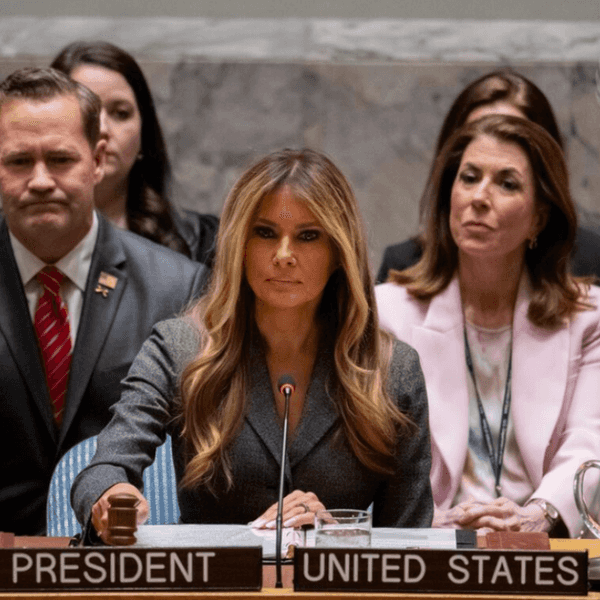GOP's 'Working Class' Agenda Is A Feeble Echo Of Fox News Obsessions
Reprinted with permission from Media Matters
Political parties often respond to electoral defeat by spending time contemplating, with varying degrees of seriousness and success, why they lost and how they need to change their approach to win in the future. Following President Barack Obama's 2012 reelection, for example, the Republican Party commissioned and published a 100-page report which pinned the blame on Mitt Romney's weakness with Hispanic voters and called for a more benign policy toward undocumented immigrants. But the party backed off after a revolt by prominent right-wing media commentators, and in 2016, Donald Trump seized the GOP nomination and eventually the presidency with a nativist campaign that both halves of the 2012 Republican ticket criticized as racist.
GOP leaders are trying to avoid a similar scenario in the wake of Trump's 2020 defeat. They are circulating a memo that seeks to chart the party's course by keeping it closely aligned with the former president -- and with Fox News.
The document represents another datapoint in the ongoing merger of the right-wing media and Republican politics. Under Presidents Bush and Obama, Fox served as the GOP's communications arm. With Trump's ascent, the feedback loop between the network and the administration gave Fox unrivaled influence. Now, the Republican Party seems to have completely capitulated to the whims of its propagandists.
Rep. Jim Banks (R-IN), the chair of the arch-conservative Republican Study Committee, writes in the memo that thanks to Trump, the GOP is now "the party supported by most working-class voters." He calls for a continued embrace of the former president, a rebranding as the "Party of the Working Class," and a focus on five issue areas he claims will "appeal to working-class voters" and bolster the GOP going into the 2022 midterm elections.
Banks' argument is muddled at best. Exit polls show that contrary to Banks' claim that Trump built a working-class coalition, he lost union households and voters making less than $100,000 while winning those making more by 12 points. What's closer to the truth is that Trump held a sizable advantage among white voters without college degrees, a demographic significantly overrepresented in the U.S. electoral system due to its geographic distribution.
But what Banks' memo does is keep the GOP on the same page as Fox's stable of right-wing stars. The agenda Banks highlights as a winner for the party is largely composed of cultural issues that receive heavy coverage on the network, rather than the political ones the network has downplayed. And like Fox's hosts, Banks is more invested in sneering at "Democrat elitism" than in describing policies that would concretely improve the lives of working-class voters.
An Issue Platform Ripped From Fox News
Banks is effectively urging his colleagues to try to bolster the GOP coalition not by proposing popular economic policies, but by bashing perceived members of the Democratic coalition -- migrants, college professors, corporations whose executives espouse views that Republicans disagree with, and the like -- thus providing news hooks for the ravenous right-wing noise machine.
Notably, one of Banks' five agenda items is "anti-wokeness." Banks does not bother to define what, exactly, "wokeness" is, though he calls it an "official part of the Democrat Party platform" which "encapsulates Democrats' elitism and classism" and ties it to "identity politics." But it amounts to turning the right-wing media's venomous, unending outrage cycle over culture war issues into a major portion of the party's platform. It's a big country -- there will always be someone for them to be angry about.
A denunciation of "regressive coronavirus lockdowns" -- a frequent subject of incendiary Fox segments -- also makes Banks' list of issues, under the culture-war frame of "Main Street vs. Wall Street" that floats government retaliation against companies that don't espouse right-wing values.
So does "Trade," which focuses not on actual policies but on Fox-friendly attacks on the Democratic Party's purported "coziness with China."
"Big Tech" is also on the menu, following years of dishonest claims about anti-conservative bias in that industry.
And after weeks of bigoted, cruel, inflammatory, and misleading Fox attacks on migrants seeking to cross the U.S. southern border, "Biden's Border Crisis" is part of the agenda.
You can see this synergy between the GOP and its communications apparatus playing out in real time.
After Georgia Republicans responded to Democratic victories in the state and Trump's false claims of a rigged election by passing a new voting law last week that curtails ballot access and shifts power to the overwhelmingly Republican state legislature, major corporations condemned it. Those companies are now coming under withering criticism from the right-wing press, stoked by calls from Republican politicians to use state power to target them for retribution.
What's Missing From This Vision For The GOP?
The Republican Study Committee traditionally focuses on a rigidly orthodox right-wing agenda of economic and budget policies. But Banks' memo includes little to no mention of taxes, spending, deficits, debt, or government regulations.
Those are startling omissions given Biden's recent passage of a $1.9 trillion coronavirus relief package, his subsequent unveiling of a $2 trillion jobs and infrastructure plan financed with tax increases on corporations, and forthcoming legislation which will address health care, education, and paid leave. Together, those bills amount to a historic investment in the material prospects of working-class Americans.
That tracks with the right-wing media's lackluster response to Biden's economic agenda. The commentators have opposed those bills, just like the GOP legislators who voted as a bloc against Biden's coronavirus legislation and have signaled similar treatment of his other packages.
But everyone involved seems more interested in talking about the likes of Dr. Seuss' purported cancellation than in challenging wildly popular Democratic economic policies. Fox commentators are more practiced at demagoguing about cultural issues, its audience has come to expect and enjoy hearing about those topics, and GOP officials would rather stoke those fires than try to fight them.
Indeed, the lines between right-wing media and political figures have become increasingly blurry. Congressional Republicans alternatively use Fox's coverage to bootstrap their political ambitions or seek to join the network or its cable news competitors. They openly acknowledge that they build their offices around communications, not legislation, or moonlight as podcasters.
This is no way to run a country. It's not good for one of the two major parties to be generating its platform based on the rantings of divisive demagogues who are paid for their ability to keep members of the base from changing the channel.
The GOP no longer has a Fox-watcher in the White House. But the party is as wedded as ever to the network's brand of politics.









